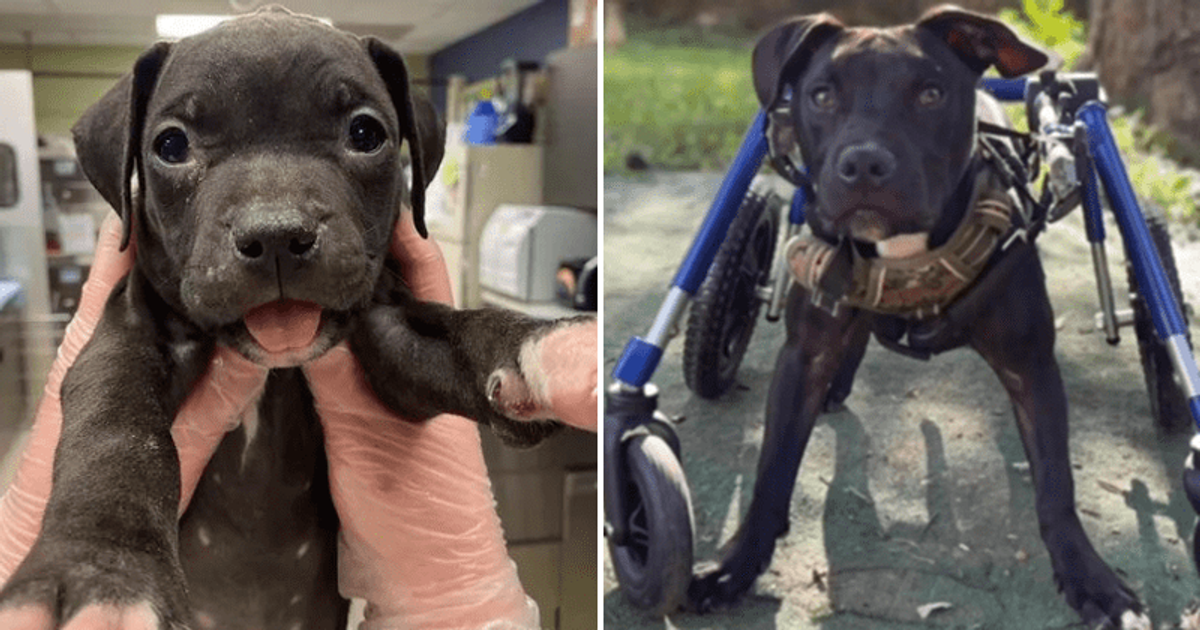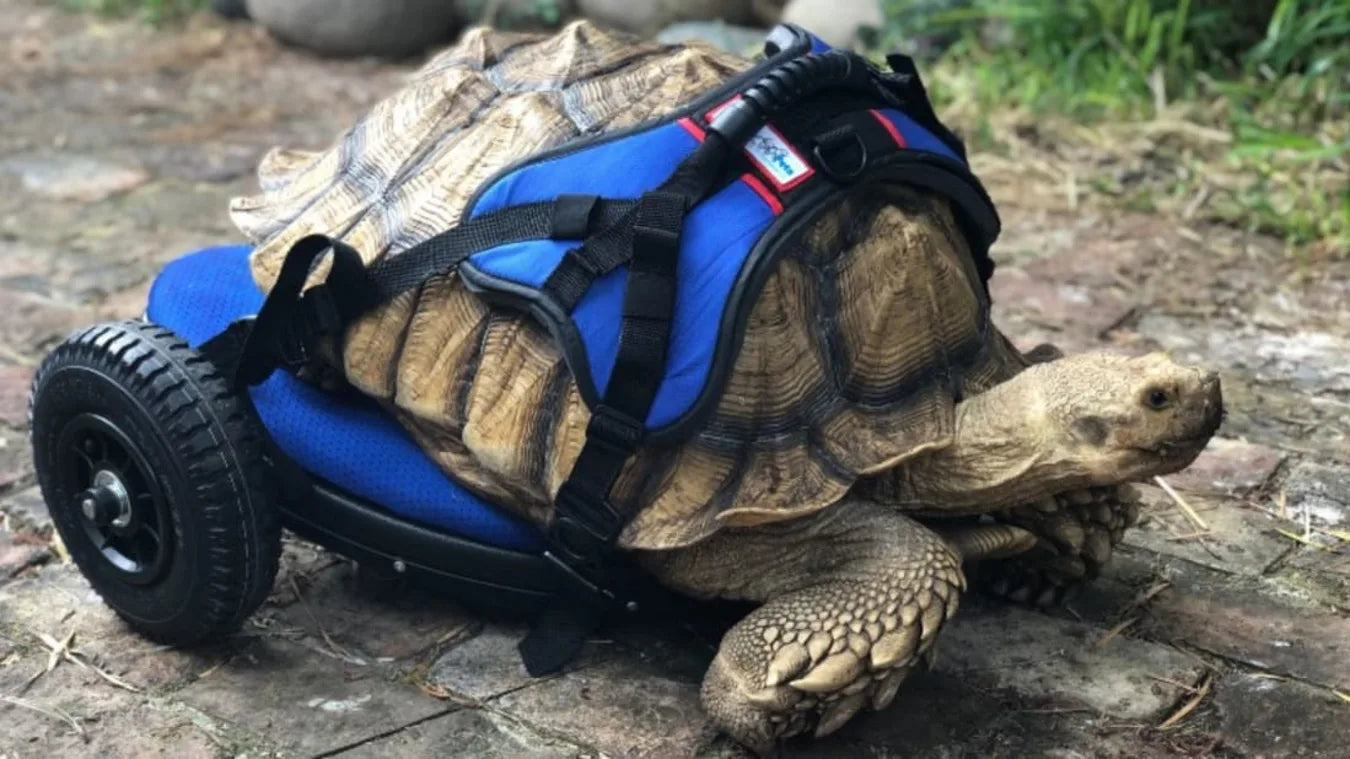Sit Down Dog Wheelchairs

Common Cocker Spaniel Health Issues
Cocker spaniels are the smallest breed in the sporting group of dogs. They are sturdy with compact bodies, and their size is ideal for the activities they engage in. They are gentle, loving, and loyal canines that are good with children and older adults. Though they are generally healthy dogs, there are some common cocker spaniel health issues that owners should be aware of.
Cocker Spaniel Mobility Problems
Bone and joint problems are quite common among Cocker Spaniels and can impact many different parts of the dog's body, including the spine, hip, elbows, and knees. In severe cases, these joint issues can even cause a cocker spaniel to lose their ability to walk and can cause paralysis.
IVDD in Cocker Spaniels

Intervertebral Disc Disease, or IVDD, is a spinal condition that causes hind leg paralysis. Cocker spaniels are prone to IVDD, which occurs when a spinal disc ruptures. This often occurs suddenly and without warning. When the disc ruptures, the material inside the disc presses against the spinal cord, impacting a dog's mobility. After a ruptured disc, a cocker spaniel will be unwilling or unable to move their back legs. Common signs include a hunched back, sudden paralysis, and dragging back feet.
Paralysis may be temporary or permanent. The faster your dog is treated, the better the outcome. After a period of crate rest, a cocker spaniel wheelchair may be used during rehabilitation and recovery.
Cocker Spaniel Wheelchair Helps Dog Stay Active
My husband and I don’t have kids, and our dogs are our kids. Our 11 year old Cocker Spaniel woke up one morning unable to walk. We found out she ruptured a disc and would be handicapped for the rest of her life. We were so depressed the entire week before receiving the dog wheel chair, wondering how we would be able to handle the situation. We had to carry her outside to use the bathroom and hold her up so she wasn’t laying in it, carry her to her food bowl, basically carry her anywhere she needed to go. After the wheel chair got here, we realized everything would be OK. She is able to get around on her own, go outside to do her business and will be able to lead a fairly normal life. We just wanted to thank your company for giving us hope again. Dog wheel chairs were the best thing ever invented and we can’t thank you enough!
Elbow Dysplasia

Elbow dysplasia occurs when a dog's bones in the elbow fail to meet the joint properly, and it can lead to painful movements in the forelimb and limping. There are many variations of elbow dysplasia, such as elbow incongruity, fragmented medial coronoid process, or ununited anconeal process. Elbow dysplasia is just one of many leg and joint conditions that impact the cocker spaniel, most of which are inherited mobility conditions.
This condition will lead to elbow arthritis and should be managed with the support of a custom elbow brace, which helps secure the joint from instability. Elbow dysplasia occurs during body development and is most likely the result of genetics.
Patellar Luxation
A patellar luxation occurs when a Cocker Spaniel's kneecap slips out of place. In most instances, a dog will run with their leg behind them and kick out the leg until the kneecap pops back into position. For most Spaniels, a patellar luxation is fairly mild and not a cause for alarm. Your cocker spaniel must see the vet if their knee dislocates frequently or if it occurs in both back legs. The more often the kneecap pops out of alignment, the higher the risk they are of developing arthritis as they age.
Eye Diseases in Cocker Spaniels
Cocker spaniels are prone to two different eye conditions that the owner should consider early on. The cocker spaniel breed has a genetic predisposition to many eye issues, including, struggles with eye pressure from glaucoma, dry eye, conjunctivitis, and more serious eye conditions like progressive retinal atrophy. When looking at young cocker spaniels, ask the breeder for information regarding the parents’ eye history. Being aware of eye surgeries that may have taken place may shed some light on potential issues in a particular pup.
Cherry Eye
Cherry eye looks as though the lower eyelid is turning inside out. Often referred to as the third eyelid, cherry eye is when the eyelid and cataracts prolapse. It usually occurs in dogs under the age of two and is treatable with surgery.
Progressive Retinal Atrophy
Progressive retinal atrophy will eventually result in complete blindness in a cocker spaniel. This condition is part of a group of degenerative diseases. It affects photoreceptor cells that deteriorate over time. Unfortunately, there is no cure yet. However, with support, your dog can still live a comfortable life.
Glaucoma
Of all the dog breeds, cocker spaniels are among the breeds most at risk for glaucoma. Glaucoma causes an immense amount of eye pressure to build in a dog's eye, which can lead to permanent blindness.
Whether your cocker spaniel is a puppy or senior, they need to have their eyes checked regularly. Look for signs of excessive tears, discolored discharge, and red or irritated eyes, which may indicate an underlying vision problem.
Ear Infections

Cocker spaniels have long ears that require much attention to avoid chronic ear problems. Upkeep of the ears is essential, as they are vulnerable to infection. Due to their long, floppy ears, the cocker spaniel has decreased airflow to their ear canal, which creates the perfect breeding ground for ear infections.
Stay vigilant in maintaining ear cleanliness and health. This breed’s ears can develop yeast infections, canker sores, and attract ear mites if left dirty and wet, among other issues. These issues are easily avoidable with proper care. Hairy ear canals may require frequent grooming and regular vet check-ups.
In addition to ear infections, skin allergies can also cause additional ear problems in cocker spaniels. If left untreated, ear conditions can become a real problem. Regular vet visits are key to keeping your cocker spaniel's ears healthy.
Lip Fold Dermatitis
Lip fold dermatitis is also known as cocker mouth and can be a common issue for the cocker spaniel breed. Dog breath can be rough in any breed. However, if you notice that your cocker’s mouth is particularly pungent, this may be due to a foreign body stuck between their teeth or teeth issues in general. Regular inspections of your dog’s mouth can maintain oral hygiene and avoid a developing infection. If bad breath continues without a detectable obstruction, check the fur around the mouth.
Cocker spaniels are a wonderful breed of dog to add to your family. Maintaining awareness of common cocker spaniel health issues will allow you to predict possible problems long before they become serious. The more support you can lend your pup, the better shape they’ll be in for the duration of their life.








